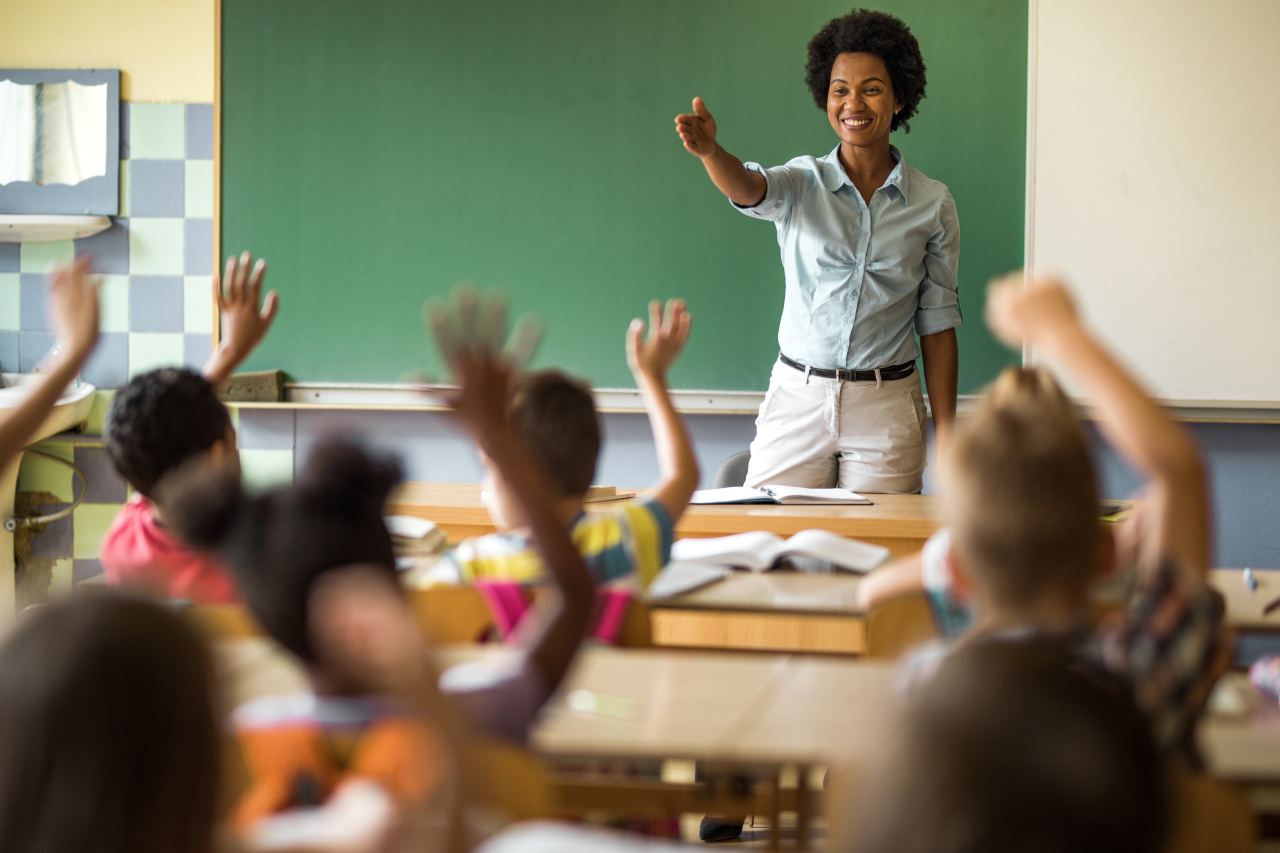Boost Your Child’s Confidence with Primary Science Tuition Singapore
Boost Your Child’s Confidence with Primary Science Tuition Singapore
Blog Article
Discover the Vital Benefits of Recognizing Key Scientific Research for Young Learners
The significance of key science education for young learners extends much beyond simple knowledge acquisition; it serves as a basic column in establishing crucial abilities such as essential reasoning, analytical, and creative thinking. Involving with clinical ideas via inquiry-based and interactive activities not just cultivates curiosity yet also lays the foundation for resilient, certain students.
Enhancing Vital Thinking Skills
Promoting important believing skills in young students is essential for their cognitive advancement and future academic success. Crucial thinking makes it possible for kids to assess info, examine evidence, and make informed decisions, which are important skills in today's information-rich culture. By participating in clinical query, young students can improve these abilities as they discover ideas via monitoring, thinking, and trial and error.
In main scientific research education, instructors can facilitate crucial thinking by motivating trainees to ask questions, develop hypotheses, and carry out experiments. This hands-on method allows children to practice analytical and create sensible reasoning skills. When trainees explore the properties of products or the concepts of movement, they find out to assess their searchings for seriously and attract conclusions based on evidence.
In addition, discussions and collaborative jobs can advertise vital thinking by giving opportunities for learners to articulate their thoughts, difficulty assumptions, and think about varied perspectives. By producing a helpful atmosphere that values inquiry and reflection, teachers can support important assuming skills that encourage young students to come to be long-lasting learners and independent thinkers. Ultimately, enhancing these abilities lays a durable foundation for their future scholastic ventures and personal growth.
Promoting Curiosity and Expedition

Key scientific research education gives a structured environment where young learners can discover different phenomena with hands-on experiments and observations. By permitting them to communicate with materials and participate in inquiry-based knowing, teachers create chances for children to formulate theories, check their ideas, and reason. Such experiences nurture a sense of wonder and exhilaration concerning science.

Structure Confidence in Issue Fixing
Building self-confidence in problem-solving is an essential element of main science education and learning that equips young students to come close to challenges with strength and imagination - primary science tuition Singapore. They develop necessary skills in important thinking and evaluation when youngsters are encouraged to engage with scientific principles through hands-on activities and inquiry-based learning. This process not just enhances their understanding of scientific principles but likewise promotes a sense of possession over their discovering
To develop confidence, educators ought to produce an encouraging environment where errors are considered as opportunities for development instead of failures. This encourages pupils to take risks and discover different options to problems. By giving scaffolding and assistance, instructors can assist pupils browse intricate jobs, slowly enhancing their self-reliance in analytical circumstances.
Furthermore, joint understanding experiences, such as group tasks or experiments, can further improve pupils' confidence as they find out to verbalize their ideas and listen to Related Site others' point of views. These interactions support social abilities and enhance the idea that analytic is commonly a cumulative undertaking. Inevitably, growing self-confidence in analytic prepares young learners for future academic obstacles and equips them with the tools essential for lifelong discovering.
Encouraging Creativity and Innovation
In the world of key scientific research education and learning, motivating creativity and development is essential for cultivating a vibrant learning setting. By promoting a culture where young students can check out ideas and experiment freely, instructors help students establish crucial believing abilities and a passion for exploration. Imagination in scientific research encourages kids to ask questions, create hypotheses, and take part in hands-on tasks that promote their creative imagination.
Incorporating flexible projects and inquiry-based learning right into the curriculum permits trainees to reveal their special viewpoints and remedies. As an example, when tasked with addressing an issue pertaining to their atmosphere, trainees can brainstorm multiple techniques, resulting in innovative end results that showcase their creativity. This not just deepens their understanding of scientific ideas yet additionally infuses a feeling of possession over their understanding procedure.
In addition, creative scientific research education and learning supports cooperation among peers, as pupils frequently share ideas and improve one another's understandings - primary science tuition Singapore. This joint spirit advertises not just advancement yet also essential social abilities. Therefore, by focusing on imagination and innovation in primary science education, we empower young students to think critically, accept obstacles, and picture opportunities, laying a strong structure for lifelong knowing and expedition
Planning For Future Learning Challenges
Young students' ability to browse future knowing difficulties depends upon a strong structure in key scientific research education. This foundational understanding furnishes pupils with crucial assuming abilities and a systematic technique to analytic, vital for taking on intricate issues in an ever-evolving globe. Primary science promotes inquiry-based understanding, encouraging pupils to ask questions, explore theories, and take part in hands-on experiments.
As they create these abilities, students become experienced at examining data, identifying patterns, and attracting notified final thoughts. Such proficiencies are vital not only in scientific fields however additionally in design, math, and modern technology (STEM), where interdisciplinary expertise is progressively essential.
In addition, main science education and learning cultivates a sense of inquisitiveness and resilience in young students, allowing them to check out obstacles as chances for development. As they come across and conquer why not try this out challenges in their clinical expeditions, they look here develop self-confidence in their capability to adjust and innovate.
Inevitably, a strong structure in main scientific research not only prepares young learners for scholastic searches yet additionally outfits them with the tools necessary for lifelong knowing and flexibility in a swiftly changing international landscape. By purchasing main science education, we are purchasing the future potential of our learners.
Conclusion
Recognizing key science is crucial for young learners, as it fosters important thinking, curiosity, and imagination. Ultimately, the advantages of key scientific research education and learning prepare kids for future scholastic searches and impart lifelong learning routines necessary for thriving in an ever-evolving globe.
The significance of main science education and learning for young students prolongs far past simple understanding purchase; it offers as a fundamental column in creating essential abilities such as critical thinking, analytic, and imagination. By creating a supportive setting that values inquiry and representation, educators can nurture vital believing skills that empower young students to come to be independent thinkers and long-lasting learners. Therefore, by prioritizing creativity and technology in main scientific research education and learning, we empower young learners to think seriously, accept difficulties, and imagine opportunities, laying a solid structure for long-lasting understanding and expedition.
Young students' capability to navigate future discovering obstacles hinges on a solid structure in key science education.Recognizing primary science is crucial for young students, as it fosters crucial thinking, interest, and creative thinking.
Report this page